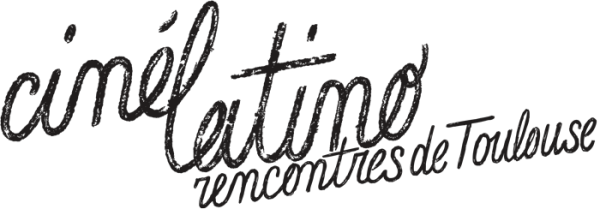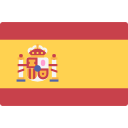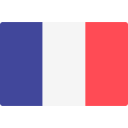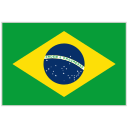- Direction
- Alejandro Fernández Almendras
- Country
- Chile
- Format
- Feature film
- Type
- Fiction
- Original title
- Hierro / Iron
- Film presented in Toulouse
Huacho
Sentados frente al fuego
2011 cine en construcción Toulouse
2012 selección oficial Toulouse
- Scenario
- Alejandro Fernandez Almendras
Alejandro Fernández Almendras
Alejandro Fernández Almendras was born in Chile, 1971. His first short film –Lo que trae la lluvia – won the Best Short Film Award of the Latin American Short Film Festival. It has also been included in the official selection of more than 30 festivals. The script of his first feature film – Huacho – was awarded by the Sundance/NHK Prize and “Groupama Gan pour le Cinéma” foundation. Huacho was screened during the Critics’ Week of the 2009 Cannes Festival. His feature film Matar a un hombre (2014) was awarded by the Grand Jury Prize of the Sundance Festival and stood for Chile in the pre-selections for the Oscars.
Filmography
2016 – Aquí no ha pasado nada (feature film)
2014 – Matar a un hombre (feature film)
2011 – Sentados frente al fuego (feature film)
2009 – Huacho (feature film)
2007 – Lo que trae la lluvia (short film)
Note of intent
Iron is a corporate thriller in the style of the great political American films of the 70’s. The film was born out of the need to address an issue that I think is of great importance in today’s political landscape: how big business are able to coordinate among themselves to outperform and anticipate the social movements and still make gigantic profits, regardless of the degree of disapproval that many of their actions have in the public eye.
Almost like a chess player that’s always two or three moves ahead of its rivals, big companies are able to adapt to new social conditions and manipulate their image in order to conceal their ultimate interest: to make money at any cost.
In recent years, ecology, environmental protection and claims of indigenous peoples have been issues that have captured the attention of the media, governments and various international organizations. However, large companies have also taken note of the issue, and what is more, have taken advantage of this new landscape.
Large mining and energy companies, whose field of action is linked directly with environmental issues, have within their business strategies large sections devoted to these topics, so to manipulate in their favor the local population, environmental action groups and political actors, as well as people and consumers in general.
The purpose of the film is to lift a veil that hides the actions of large corporations regarding the environment, so to uncover the complex webs of intrigue and deceit that allowed them to continue operating and making more and more profits.
Iron will be constructed around the clash of two different worlds: one corresponding to Santiago, the world of big businesses, luxury and elegance that characterizes the life of Catalan; and another one corresponding to the life in the poor rural Mapuche community. Those two worlds would differ not only in the luxury or lack thereof; they would also signal two different ways of life, two confronted forms of human relationships. In the city, Catalan would always be at the defensive, seeing in people enemies to confront. In the countryside he will be in contact with people that are open, trustful, people that give warm without asking for something in return. Slowly, that would be changing Catalan too.
Synopsis
Mauricio Catalan, 45, is a successful lawyer, a partner at a “boutique” law firm focused on environmental issues. Like any good trial lawyer, Catalan is charismatic, dynamic and with great power of persuasion. His rhetoric is relentless. Also, like any good lawyer, he has often had to defend clients who are on both ends of the environmental arena. Some great legal victories for small communities fighting against big multinational companies have earned him a legendary reputation. But he has also scored big points for big companies trying to take advantage of smaller competitors.
Through an environmental NGO, Catalan is contacted by an indigenous “mapuche” community in the south of Chile, concerned about the recent activity of a large mining company in its territory. The communities in the area are aware of the rich iron deposit that rest on their ancestral lands, and understand that they need someone to defend them against the great business interested in it. They need the best lawyer. After studying the case, Catalan decides that there is an opportunity to pressure the company to reach an agreement that is favorable for the community, and by extension, to himself. Catalan move his contacts and conducts complex judicial maneuvers, while constantly traveling to the area to be in contact with the Mapuche community, to gain their trust, and, eventually, convince them that the best solution is a negotiated one.
In the process he meets the sexy and ruthless attorney for the company, a girl who had been his student in a graduate class at a foreign university and with whom he maintained a fleeting affair. When the situation of social tension escalate up to a point when it starts to be dangerous for him and the community, Catalan decides to settle with the company, only to realize then that he has been only a pawn in a much bigger corporate chess game.
Visual concept
The general style of art of this film is naturalistic, avoiding yes, as far as possible, the contrasts too sharp and above all the annulment of the importance of each character must be central or leading to an environment that often in terms of colors, action or art elements may become more important or capture the viewer’s attention. The art of the film will work well rather “remove” rather than “put”, grouping and regrouping of elements already present in the locations.
The narrative is linear with a montage narrative, telling the facts chronologically. Stocks and short dialogues are making known the story at a leisurely pace in the south and agile in the city, mixing luxury and poverty as a contrast. The means of communication between the characters is made simple and short dialogues, in the words of people who play the roles. In addition, non-verbal communication plays an important role.
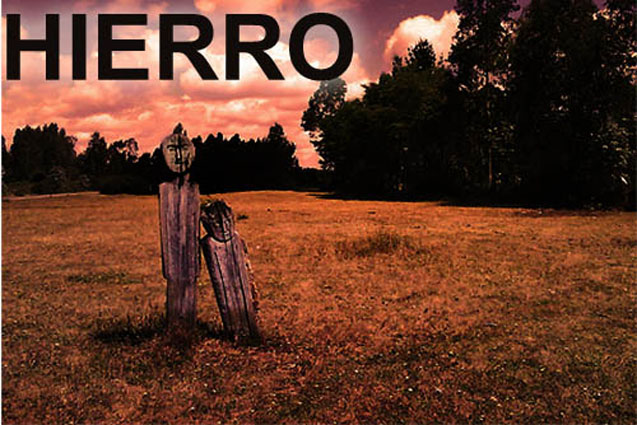
- Objectives sought in Films in Development
French co-producer, sales agent, distributor
- Shooting planned date
2013
- Planned shooting location
Biobio Region, Lleu-Lleu Lake
- Project's development phase
Development









